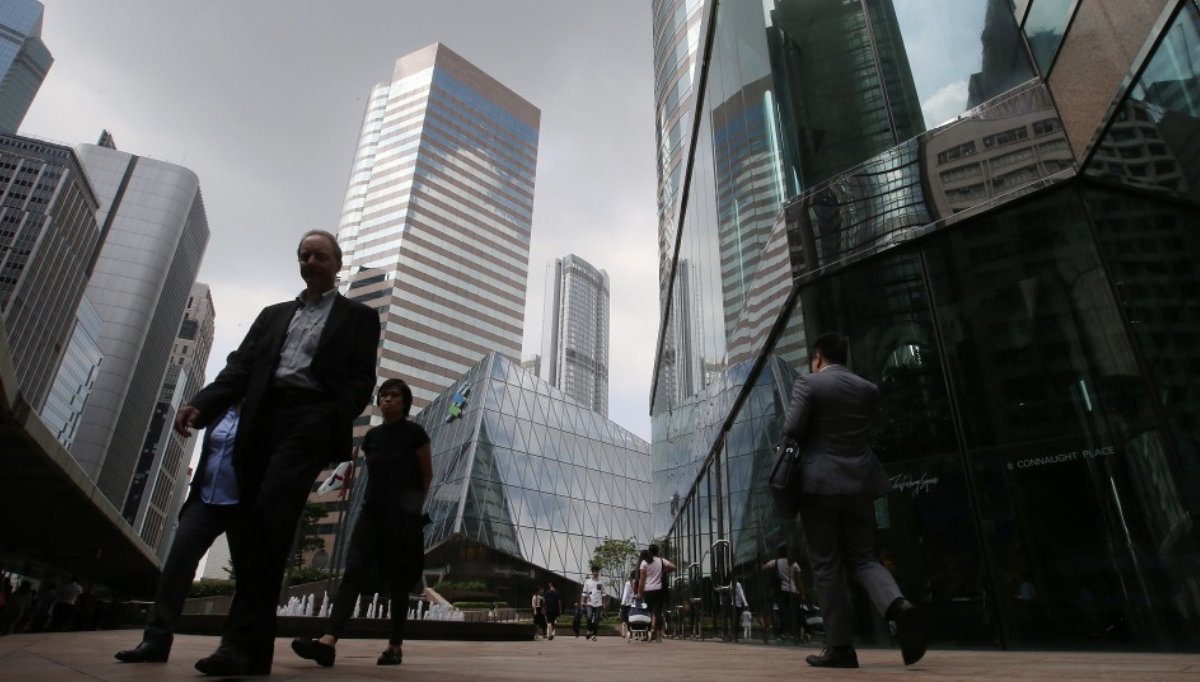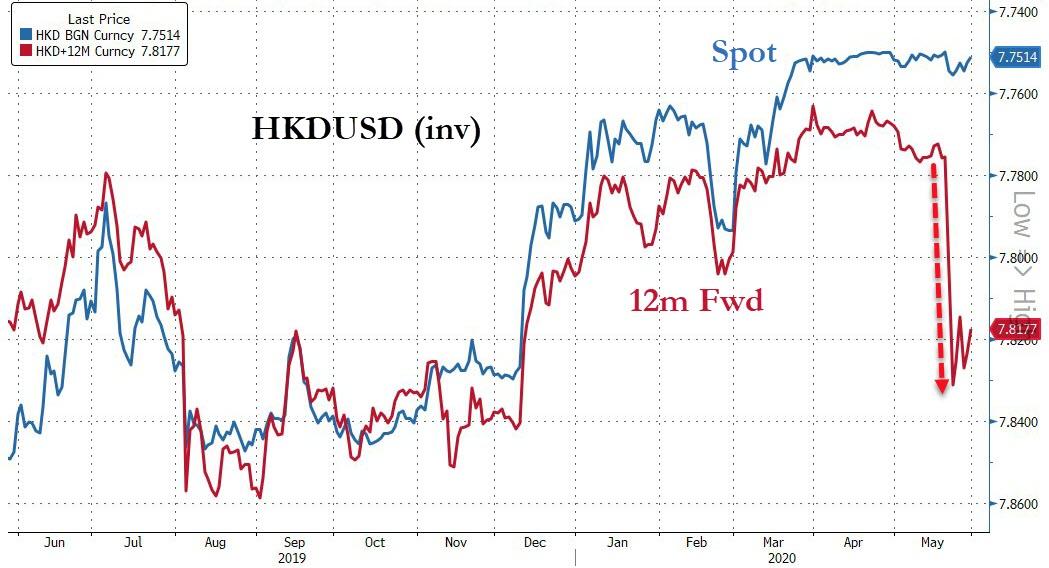Hong Kongers Scramble To Swap Their Currency For US Dollars As ‘Special Status’ Threatened
Tyler Durden
Fri, 05/29/2020 – 22:10
Even before protests over a controversial extradition bill sparked the tumultuous pro-democracy movement that swept across Hong Kong last year, the notion that the city’s freedoms were under threat, and that China would soon move to curtail them, had been gestating since the 2014 Umbrella Movement. Last Spring, before the movement began in earnest, Kyle Bass published a paper entitled “the Quiet Panic” about how Hong Kong was a ticking time bomb. A few months later, it exploded.
Over the past 16 months, expats haven’t been the only ones fleeing Hong Kong. Virtually everyone who can afford to move has at least considered the possibility of selling their once extremely valuable Hong Kong real estate and fleeing elsewhere, perhaps to New Zealand, or Australia, or Malaysia – or Taiwan, which is currently drawing up plans to welcome expats.
As more prepare to move before China tightens its grip, Bloomberg reported Friday that Hong Kong residents have been exchanging more of their HKD holdings into foreign currencies at banks and money exchange counters on Thursday, according to Sing Tao, Hong Kong’s second-largest Chinese-language newspaper. According to BBG, the paper didn’t cite a source for the data, but it’s not exactly difficult to believe.
On Thursday, Beijing’s Politburo Standing Committee officially wove a new National Security law into Hong Kong’s constitution, taking advantage of a loophole requiring Hong Kong to always have a national security law on its books. Many have decried the move as a crossing of the Rubicon – that Beijing no longer cares about placating its western “allies” as it cracks down on freedoms in territories it claims.
The FX activity was driven by concerns about US sanctions, and the possibility that the US will immediately move to revoke Hong Kong’s “special status”, which allows it more favorable trade treatment and other advantages over mainland China. US Secretary of State Pompeo warned that he had recommended to Congress that HK is no longer independent from Beijing.
Some popular money exchange shops in Tsim Sha Tsui, Central and Wan Chai areas even ran out of USD on Thursday evening, forcing some people to trade their dollar-pegged HKD for GBP, JPY, CHF, AUD and NZD instead.
Though spot HKD is trading toward the strong end of its band Friday as the dollar weakens against the euro and several other major rivals, Kyle Bass’s bet against the currency peg, which critics once slammed as absurd and unlikely to pay off, is becoming increasingly popular as a trade as derivatives markets price in growing expectations for depreciation.
Meanwhile, HK executive Carrie Lam (known to her many detractors as “Piglet”, a reference to the character from “Winnie the Pooh”, published a notice in almost all Chinese-language papers in the city calling on citizens “not to fear” the national security law, insisting it would only target a “small minority” of “criminals”.
Carrie Lam to fellow citizens of Hong Kong, minus readers of Apple Daily: Fear not, national security laws will only target a small minority of criminal acts and activities, as well as the foreign interference that has stirred up unrest.@natashakhanhkhttps://t.co/o9YfuLWNsp
— Jonathan Cheng (@JChengWSJ) May 29, 2020
We imagine this trend isn’t over yet. Let’s hope Hong Kong has enough foreign reserves to stave off a wider banking crisis.
via ZeroHedge News https://ift.tt/3dfSBXX Tyler Durden

